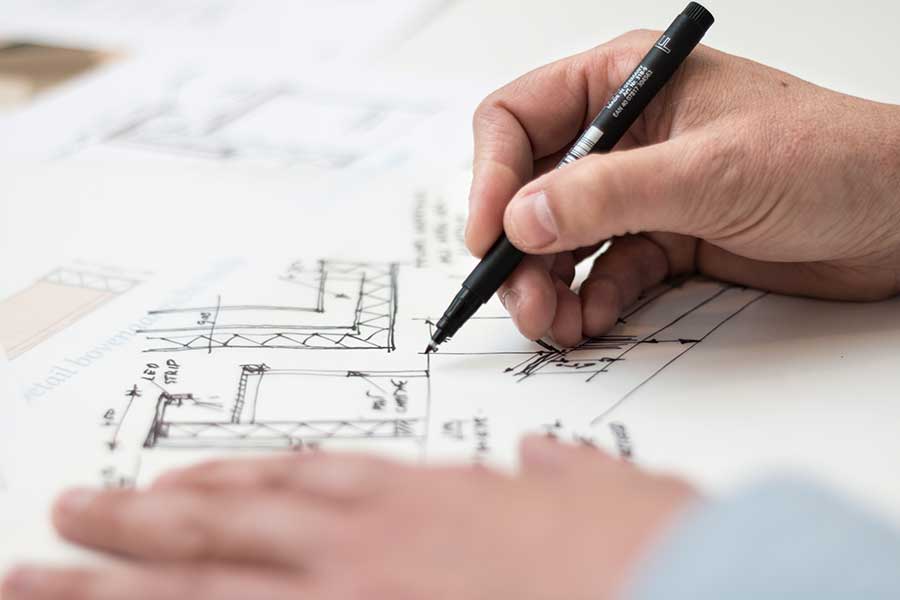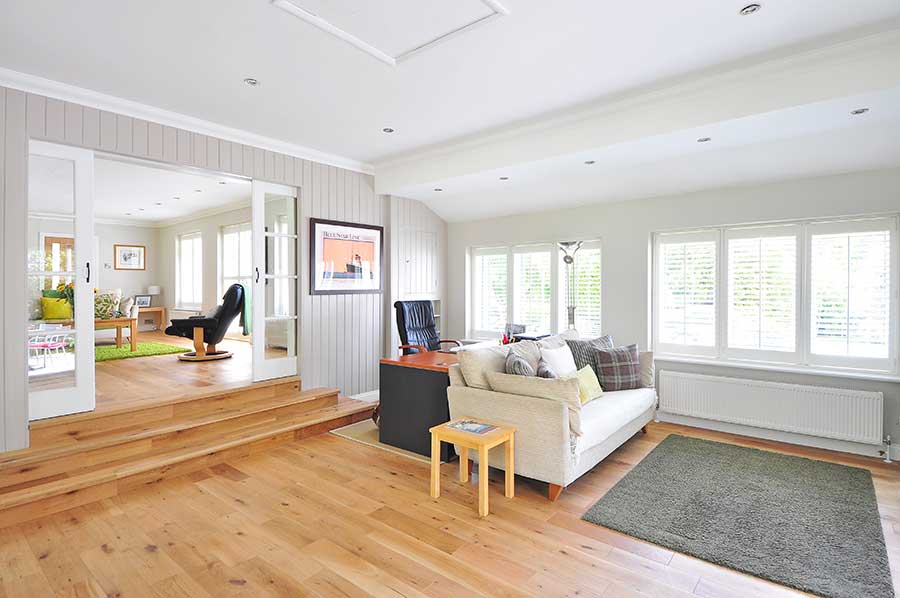It’s a problem faced by most people at some stage in their lives: the property you call home no longer offers the amenities or space you require.
Maybe you need room for a home office, or the family is growing and you need an extra bedroom, or perhaps you’re dreaming of a spacious kitchen dining room. In some cases, for example if you live in a first floor flat and you want a garden, there is no alternative but to move. However, if your property offers the potential for an extension or has a loft, garage or cellar suitable for conversion, the decision won’t be as clear-cut. If you’re weighing up whether it’s better to sell up and move or extend and improve your current home, here are some key factors to consider:
Unlock your property’s potential by extending
With house prices having soared out of the reach of many, high stamp duty and a lack of suitable housing stock, we are seeing a boom in house extensions as growing families seek more space. At a time when house prices are fairly static, building an extension makes good financial sense: figures from the BBC show that the number of house moves has fallen by half in the past decade as people extend their homes instead. Previously, homeowners were likely to move four times after their first house purchase but a first-time buyer today is probably only going to move house no more than twice.

Your home is about so much more than the actual property: if you love the location, if you have great neighbours or your children are settled at a good local school, extending and improving your house is an attractive option. If your home has a loft or cellar suitable for conversion or an outside space such as a side return with potential for an extension, a renovation project will not only provide you with more space, it also brings the bonus of adding value to your property: upgrading a two bedroom house with a third bedroom will increase its selling price considerably. To help you work out how much a typical extension will cost on a property in your location, you can get a quick quote here.
Increase the value of your property
Some extensions will add more value than others so it pays to do the maths carefully. A loft conversion that provides you with another bedroom and bathroom will add up to 20% to the value of the property while adding another bedroom will add 10%. Today’s house buyers tend to expect a second bathroom as standard, so an additional bathroom will increase your property’s value by just 5%. One of the quickest ways to gain more space is to add a conservatory, according to estate agents Savills, a conservatory that complements the architecture of the house could see its value increase by around 10%.

Factor in your location
Where you are in the country will also affect the financial viability of an extension. In Bedfordshire for example, an average extension on a home costing £300,000 will increase the selling price by £57,000, or around £5000 more than the build cost, but in Swindon, you will see a profit of just £66. The property hotspot of central London shows a totally different scenario: an extension costing £50,000 on a house worth between £1 – £2 million will add £212,000 to its value.

Future proof your extension
When planning an extension, think about its practicality and appeal to future purchasers. A three or four bedroom house without the equivalent space downstairs will be harder to sell in the future. It’s also inadvisable to over improve: you are unlikely to recoup the costs of upgrading a house by adding extra bedrooms if it’s located on a street of small two bedroom properties. Other factors to take into consideration are whether you need planning permission and how likely this is to be granted. It will be more difficult to obtain permission for alterations to listed buildings and buildings in conservation areas. Finally, you should never underestimate the length of time necessary and general disruption associated with renovation projects. A conversion of your garage might cause minimal disruption to family life but a basement or loft extension will have a considerable impact on your daily routine for several months. Kitchen and bathroom renovations can be particularly difficult as these areas will be out of bounds for days at a time.

Time to move on?
If extending your home isn’t an option, then selling up and taking the next step on the property ladder is the solution. Unless you are intending to stay in your house for several years, you might not achieve the full financial benefits of an extension. Moving house doesn’t necessarily mean leaving the area where you have settled and could be well worth it both financially and in terms of the extra space you gain.
There are additional costs involved in moving just as in building an extension. Stamp duty is a considerable expense. While first time buyers have the advantage of advantage of 0% stamp duty for homes between £125,00 to £250,000, the rate rises to 5% on homes valued at between £250,000 to £925,000, so on an average house worth £350,000 you will pay £17,000 in stamp duty. Other costs of moving include legal and estate agents fees, and you might also need to apply for a bigger mortgage.
Weighing things up
As with most other major decisions in our lives, determining whether to move or improve is a subjective choice that will depend on many different factors. Weighing up the costs and disruption of extending against the expenses involved in a house move well in advance will help you to come to the right decision for you.